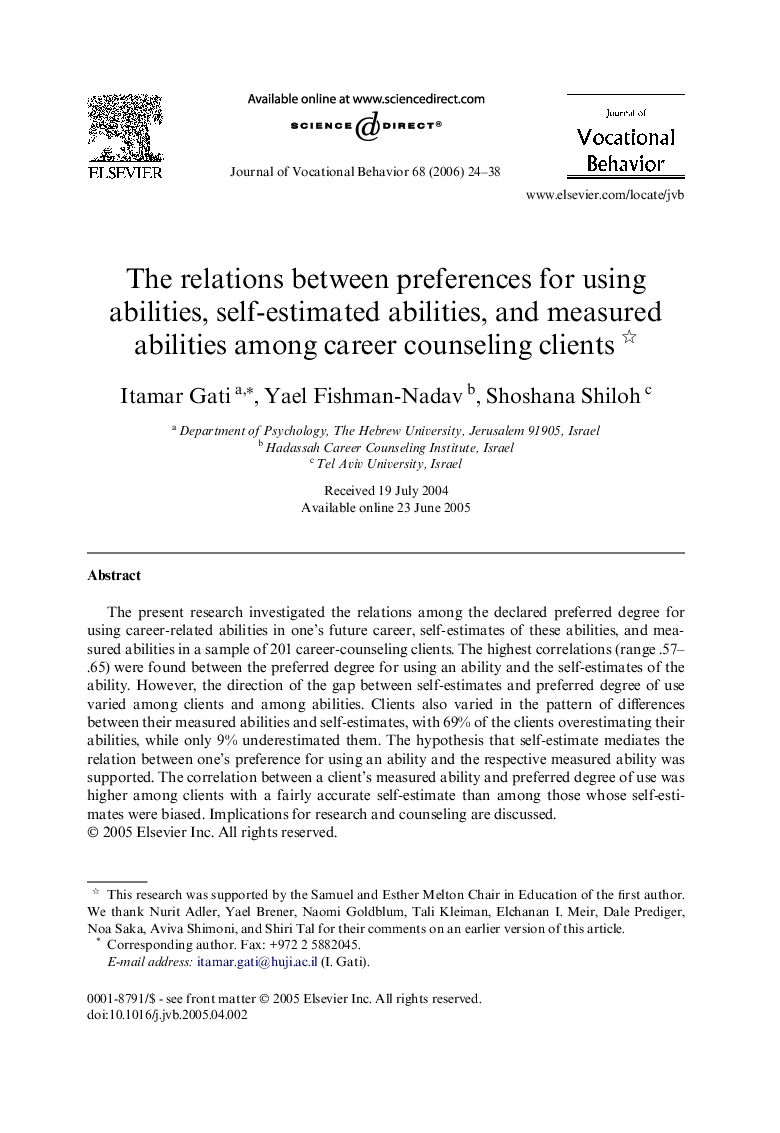| Article ID | Journal | Published Year | Pages | File Type |
|---|---|---|---|---|
| 887650 | Journal of Vocational Behavior | 2006 | 15 Pages |
The present research investigated the relations among the declared preferred degree for using career-related abilities in one’s future career, self-estimates of these abilities, and measured abilities in a sample of 201 career-counseling clients. The highest correlations (range .57–.65) were found between the preferred degree for using an ability and the self-estimates of the ability. However, the direction of the gap between self-estimates and preferred degree of use varied among clients and among abilities. Clients also varied in the pattern of differences between their measured abilities and self-estimates, with 69% of the clients overestimating their abilities, while only 9% underestimated them. The hypothesis that self-estimate mediates the relation between one’s preference for using an ability and the respective measured ability was supported. The correlation between a client’s measured ability and preferred degree of use was higher among clients with a fairly accurate self-estimate than among those whose self-estimates were biased. Implications for research and counseling are discussed.
